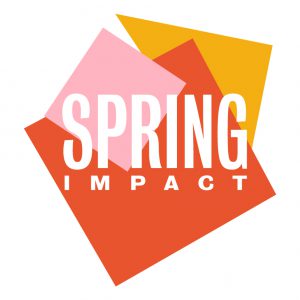2019 Scale Accelerator
Comments Off on 2019 Scale Accelerator



Spring Impact recently published a research report produced in partnership with Numbers for Good, with support from the Argidius Foundation. The report identifies seven key barriers to effective advisory services focused on scale–– technical assistance (TA)–– for small and growing businesses (SGBs), and recommends the necessary steps to help more SGBs reach their scale goals.
What if we were to tell you, that right now, there are a group of extraordinary organisations providing approximately 66% of employment opportunities, and generating 86% of new jobs in developing economies?[1]. That these organisations have the potential to transform economic development and access untapped markets of an estimated 4.5 billion new customers in 92 countries, valued at approximately $5 trillion USD.[2] That they are providing quality jobs, goods and services locally, and by doing so are lifting families and communities out of poverty, and generating larger-scale socioeconomic prosperity.
We’re not talking about a tech company, or a government initiative, but small and growing businesses (SGBs). SGBs are interesting for a few reasons. Firstly, they are distinct from the broader group of micro, small, and medium three enterprises (MSMEs) in that despite their size, they have strong ambitions and potential for growth.
Secondly, in their quest for financial sustainability they create social impact, economic development, and increase access to critical goods and services for underserved communities.
Funders understandably want to know when their funding will no longer be needed. But for some funders the Holy Grail of “financial sustainability” is becoming code for “when will your organization’s revenue be 100% earned income?”
The problem is, when a philanthropic institution feels pressure to shift its focus from impact to becoming a viable business with earned income in order to appear attractive to funders, ‘mission drift’ is all but inevitable. Funders give to philanthropic organizations because they believe in the organization’s ability to resolve a social issue. But what price are non-governmental organizations (NGOs) paying for that support?
Dr. Leslie Lenkowsky is Senior Counselor to the Dean, Professor Emeritus of Public Affairs and Philanthropic Studies at the Indiana University Lilly Family School of Philanthropy. He challenges his social entrepreneurial students to question earned income as a cure-all for financial sustainability; and raises questions about funders who aim to micromanage philanthropy as they do their investments.
“Charities are already complaining—often not unjustifiably—that business-minded donors are doing too much micromanaging, and not giving those directly in touch with the problems they want to solve—and people they want to help—enough leeway to try unproven or unorthodox methods of making progress. If donors were to become equity investors, these conflicts would undoubtedly grow.” says Lenkowsky.
Do You Really Want the Answer?
Let’s be honest. What funders really want to know is “when will your organization no longer need our money.” This is a good and necessary question. If many NGOs were to answer honestly, their response would probably be: “I will stop needing your money when we have solved the social problem we are working on together.” However, unfortunately the answer is often, “I will no longer need your money after we build this goat milk farm to support our physical disabilities center for children living in poverty. If we can manage to make the farm and children’s centre run well, we’ll do great!” (even though I have no business training and my passion is improving the health of the disadvantaged).